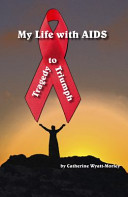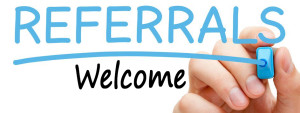
Ovarian Cancer – Signs and Symptoms
It is always important to pay attention to your body and know what is normal for you from head to toe. It is especially important for women to pay attention to certain gynecologic signs that may be abnormal. Those signs may be your body telling you something is seriously wrong. According to the Ovarian Cancer National Alliance, The American Cancer Society estimates that in 2013, about 22,240 new cases of ovarian cancer will be diagnosed and 14,030 women will die of ovarian cancer in the United States. A woman’s lifetime risk of developing invasive ovarian cancer is 1 in 72 and a woman’s lifetime risk of dying from invasive ovarian cancer is 1 in 95.
According to the Centers For Disease Control, Ovarian cancer may cause one or more of these signs and symptoms—
- Vaginal bleeding or discharge from your vagina that is not normal for you.
- Pain in the pelvic or abdominal area (the area below your stomach and between your hip bones).
- Back pain.
- Bloating, which is when the area below your stomach swells or feels full.
- Feeling full quickly while eating.
- A change in your bathroom habits, such as having to pass urine very badly or very often, constipation, or diarrhea.
Research suggests that the majority of women with ovarian cancer experience symptoms. Symptoms vary and often depend on the location of the tumor and its impact on the surrounding organs. Many ovarian cancer symptoms mimic those of less life-threatening conditions such as irritable bowel syndrome which makes it even that much more important to see a doctor if you are experiencing any of the above mentioned symptoms.

When Faced with Resistance…
When faced with resistance, apply persistence!

HIV/AIDS and Aging
HIV/AIDS and aging were not usually two words that went together. When the epidemic first began to spread, those who were diagnosed were not expected to live much longer. Fortunately,with new medications and treatments, the life expectancy of someone living with HIV/AIDS has increased drastically which makes aging with HIV/AIDS a reality all over the world. In fact, almost one-fourth of people living with HIV/AIDS in our world today are over the age of 50. Living with HIV presents certain challenges, no matter what your age. Yet, older Americans with HIV may face different issues than their younger counterparts, including greater social isolation and the lack of a strong, local support system. Older individuals may also face different stigmas when disclosing their status to partners, family, or friends. Aging normally is associated with a myriad of risks including anything from arthritis to osteoporosis. Yet, complications can arise and illnesses can be worsened with aging and HIV. Some of those specific illnesses include Dementia, Depression, High Cholesterol, and Infections to name a few.
In all actuality, there may even be many more cases today than we know about. Why? One reason may be that doctors do not always test older people for HIV/AIDS and so may miss some cases during routine check-ups. Another may be that older people often mistake signs of HIV/AIDS for the aches and pains of normal aging, so they are less likely than younger people to get tested for the disease. Also, they may be ashamed or afraid of being tested. People age 50 and older may have the virus for years before being tested. By the time they are diagnosed with HIV/AIDS, the virus may be in the late stages.
The number of HIV/AIDS cases among older people is growing every year because:
1. Older Americans know less about HIV/AIDS than younger people do. They do not always know how it spreads or the importance of using condoms, not sharing needles, getting tested for HIV, and talking about it with their doctor.
2. Healthcare workers and educators often do not talk with middle-aged and older people about HIV/AIDS prevention.
3. Older people are less likely than younger people are to talk about their sex lives or drug use with their doctors.
4. Doctors may not ask older patients about their sex lives or drug use or talk to them about risky behaviors.
Remember, W.O.M.E.N. offers FREE and CONFIDENTIAL HIV testing as well as counseling services. There is no reason, especially age, to not stop by and know your status.

W.O.M.E.N. On A Journey – Our 2013 Spring/Summer Newsletter
A bit of time has gone by since the last edition of ‘W.O.M.E.N. On A Journey’, and what a journey we are on. There have been a lot of exciting changes, additions, and ideas going on in and out of the office and we are all very excited for this next chapter of the organization. In keeping with our mission, W.O.M.E.N. has been a part of numerous health fairs and festivals throughout the community. We have formed wonderful new partnerships and are conducting on-site health screens and counseling in addition to our other services. As you will read further in this edition, we also have a number of new campaigns that are shaping up to not only change our organization, but change the lives of those we touch.
Please click HERE to view our 2013 Spring/Summer Newsletter!

My Life With AIDS, Tragedy to Triumph – Available NOW
With FIVE STARS on www.amazon.com, My Life With AIDS, Tragedy to Triumph is available now! Considered “a must read” by one reviewer, “Catherine not only delivers a powerful message, but one that is heartfelt, honest and impactful. It is one of the most important messages that a woman (or man) could witness.”
Just like her previous work, Catherine Wyatt-Morley has poured her heart into this book using every bit of strength she has. Catherine went through a cycle of internalizing and self-educating, before she gained the strength for helping others. Desperately seeking sanity in an insane diagnosis, she took control of her life through the pages of her first book, AIDS Memoir Journal of an HIV Positive Mother written to her children and in 2005, Catherine joined Ian Mayo-Smith in writing a second book, entitled Positive People: Combating HIV and AIDS (Trafford Publishing).
In AIDS as in many other diseases both physical and psychological, the most successful prevention efforts aim not just at informing people, but also at changing social norms. Catherine’s life and W.O.M.E.N. carry out both of those tasks. Catherine hopes to remain at the forefront in the fight against HIV/AIDS and fervently believes that before the sun sets on another child’s dreams, HIV must be eliminated. “I can say that she not only writes the message, but she LIVES the message each day as she strives past her own struggles to educate and impact others.” – amazon.com review of My Life With AIDS, Tragedy to Triumph.
My Life With AIDS, Tragedy to Triumph is available HERE in paperback and Kindle version
Pick up your copy today!

Pregnancy and HIV/AIDS – What You Need to Know
Motherhood is an experience that everyone who wants to, deserves to experience. It is as rewarding as it is life changing, and it is imperative that you are in the best health you can be to start your child’s life the healthiest way possible. What most people don’t realize is that there are ways to get pregnant and not infect your partner or the child. With that said, when embarking on this journey, it is imperative to know that HIV can be spread to your baby during the pregnancy, while in labor, while giving birth, or by breastfeeding. Luckily, you will have many choices to make about lowering the risk of passing HIV to your baby. Just because you have HIV doesn’t mean your child will get HIV. In the United States, before effective treatment was available, about 25 percent of pregnant HIV-positive mothers who didn’t breastfeed and did not receive anti-HIV treatment in pregnancy passed the virus to their babies.
Today, the risk of giving HIV to your newborn is below 2 percent. But you and the baby must get the right HIV drugs at the right times. The steps below can lower the risk of giving HIV to your baby.
- -Get as healthy as possible before becoming pregnant.
- -Start HIV treatment before pregnancy if you need it for your own health. Or, you can start treatment during pregnancy to lower the risk of passing HIV to your baby. If you are already on treatment, do not stop, but do see your doctor right away. Some HIV drugs should not be used while you’re pregnant. For other drugs, you may need a different dosage.
- -Make sure your baby is tested for HIV right after birth. Your doctor or clinic should be experienced in managing babies who have been exposed to HIV. They will tell you what follow-up tests your baby will need, and when.
- -Ask your doctor about starting treatment for your baby right away if your baby is diagnosed with HIV. This may require a number of tests and you may not know until he is 2 to 4 months old.
- -Until you know that your baby is HIV-positive or HIV-negative, ask your pediatric HIV specialist if your baby might benefit from anti-HIV medicines. New research shows that putting a newborn on a 2- or 3-drug anti-HIV medicine plan cuts the infant’s risk of HIV by 50 percent (compared to using one drug only).
- -Ask your doctor about other medicines the baby may need to prevent opportunistic infections until you know for sure whether the baby has HIV.
If you want to get pregnant, or just found out you are pregnant, you need to get to a doctor right away. If you need help finding the resources for you, give us a call and we will be happy to help!

What You Need to Know about Hepatitis
To put it simply, Hepatitis means inflammation of the liver. Unfortunately, nothing about Hepatitis is simple. According to the World Hepatitis Alliance, Hepatitis is a disease that that currently affects more than 500 million people around the world and is responsible for approximately 1.5 million deaths a year. Currently the world’s 8th biggest killer, Viral hepatitis is one of the most underestimated diseases on the planet. Although one in three people around the world have been in contact with a hepatitis virus, many people have no idea what it is.
Viral Hepatitis Transmission
People can be infected with the three most common types of hepatitis in these ways:
- HAV: Ingestion of contaminated fecal matter, even in tiny amounts, from close person-to-person contact with an infected person, sexual contact with an infected person, or contaminated food, drink, or objects.
- HBV: Contact with infectious blood, semen, or other body fluids; sexual contact with an infected person; sharing of contaminated needles, syringes, or other injection drug equipment; and needlesticks or other sharp-instrument injuries. In addition, an infected woman can pass the virus to her newborn.
- HCV: Contact with blood of an infected person, primarily through sharing contaminated needles, syringes, or other injection drug equipment, and, less commonly, blood transfusions, sexual contact with an infected person, birth to an infected mother, and needlesticks or other sharp-instrument injuries.
Chronic HCV is often “silent,” and many people can have the infection for decades without having symptoms or feeling sick. Compared with other age groups, people aged 46 to 64 are 4 to 5 times as likely to be infected with HCV. Any sexual activity with an infected person increases the risk of contracting hepatitis. In particular, unprotected anal sex increases the risk for both HBV and HIV. New data suggest that sexual transmission of HCV among MSM with HIV occurs more commonly than previously believed. (according to the Center for Disease Control)
Viral Hepatitis Prevention
If you have HIV infection, you can lower your risk of contracting hepatitis and other bloodborne viruses by not sharing toothbrushes, razors, or other personal items that may come into contact with an infected person’s blood. Do not get tattoos or body piercings from an unlicensed facility or in an informal setting, which may use dirty needles or other instruments. Just as HIV-positive individuals would not want to engage in behaviors that would put them at risk for hepatitis, these same behaviors would also put others at risk for HIV.
- HAV: The best way to prevent HAV infection is to get vaccinated. The Centers for Disease Control and Prevention (CDC) recommends vaccination for HAV for people who are at risk for HIV infection, including MSM; users of recreational drugs, whether injected or not; and sex partners of infected people.
- HBV: The best way to prevent HBV infection is to get vaccinated. CDC recommends universal vaccination against HBV for people who have or are at risk for HIV infection, including MSM; people who inject drugs; sex partners of infected people; people with multiple sex partners; anyone with a sexually transmitted infection; and health care and public safety workers exposed to blood on the job.
- HCV: There is no vaccine for HCV. CDC estimates that people born during 1945 through 1965 account for nearly 75% of all HCV infections in the United States. The best way to prevent HCV infection is to never inject drugs or to stop injecting drugs if you currently do so by getting into and staying in a drug treatment program. If you continue injecting drugs, always use new, sterile syringes and never reuse or share syringes, needles, water, or other drug preparation equipment. You can also reduce your risk for contracting HCV from sexual contact by
- Abstaining from sexual intercourse.
- Being monogamous.
- Using a condom.
- Avoiding rough sex.
- Getting tested for sexually transmitted diseases and HIV.

…Things You Should Know about HIV and Safer Sex (cont.)
- If you chose to have sex, use a latex condom with EVERY partner. No exceptions.
- Use protection, wear a latex condom.
- Use a new latex condom each time you have vaginal, anal or oral sex.
- Use water based lubricant with latex condoms.
- Never use an oil-based lubricant such as hand lotion or baby oil. It weakens the latex and the condom may break.
- Use a latex barrier (a condom cut in half or a dental dam) if you have oral sex with a women.
- Massage, hugging and masturbation are safe.
- It’s safer not to use drugs.
- Insist on watching your NEW tattoo needle come out of packaging before getting a tattoo. Never share needles or inks for tattooing or piercing.
- NO CONDOM, NO SEX, NO WAY.” tells your partner you’re serious about safer sex.
- Talk about safer sex with EVERY partner before you have sex.
- Ask your partner about his/her sexual history, behaviors and drug usage before you engage in any sexual activity.
- If you are infected and do not inform your sexual partner of your HIV status before sex and you engage in unprotected sex and transmit HIV to that person you have committed a felony.
- Taking a HIV test is the only way to know you are not infected.
- Get tested three to six months after any unprotected exposure.
- You have options. You can buy a home HIV test kit at most drug stores. Then contact the nearest community based organization for counseling or to ask questions. You can also get tested by a doctor, health clinic, community based organization or public testing center.
- Some testing sites keep results confidential while others utilize anonymous testing. Confidential testing uses your real name. You and your doctor will know the results. Anonymous testing doesn’t use your name at all. Only you will know your results.
- People are still dying of AIDS related illnesses.
- THERE IS NO CURE! Remember you are in charge.

15 Things You Should Know about HIV and Safer Sex
- Anyone can get HIV (the virus that causes AIDS)
- HIV attacks your body’s immune system.
- A person with HIV may get sick with certain diseases and then be diagnosed with AIDS.
- Many people who have AIDS in their twenties become infected with HIV in their teens.
- You can be infected with HIV for 10 or more years without having any recognizable symptoms.
- You can’t tell by looking if someone has HIV.
- You can take steps to protect yourself from HIV. Put yourself first. Get tested today.
- If you put yourself at risk you can become infected with HIV. IT DOESN’T MATTER WHO YOU ARE.
- You are at risk any time you exchange body fluids (semen, blood, vaginal fluids or breast milk).
- You can become infected if you have sex with an infected person.
- Unprotected sex among infected partners may cause cross-infection resulting in drug resistance.
- You can also become infected if you share needles or syringes with an infected person.
- HIV is not passed through hugging, hand shaking, and coughing, talking, sneezing or toilet seats, water fountains, bathrooms or eating utensils.
- Safer sex means taking steps to protect yourself.
- Choosing not to have sex is safest.






